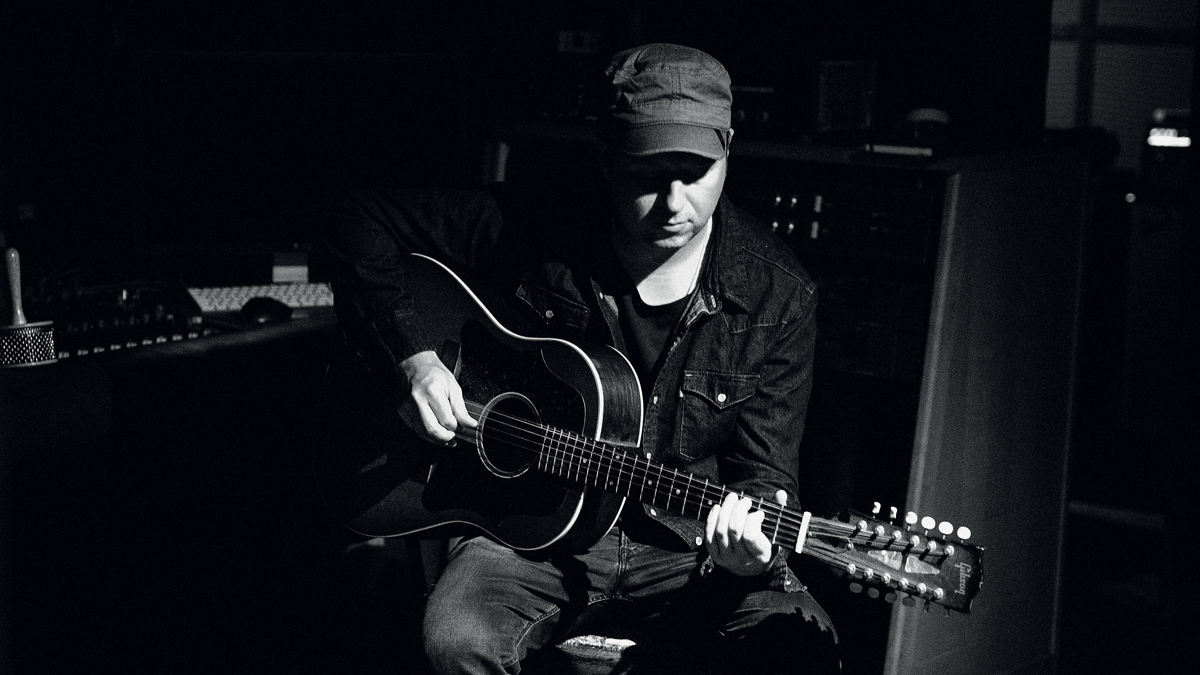Scott McKeon on shaping a modern blues tone par excellence and how Joe Bonamassa persuaded him to release the SM Fuzz
The bluesman and Tom Jones guitarist details the making of latest album New Morning

Scott McKeon is a guitarist notable for many reasons. He was the child prodigy that became the face of a Fender campaign to recruit younger talent in the '90s, making his debut on British television at just seven years old.
For much of the last decade, he’s been busy playing guitar in legendary singer Tom Jones’ band and developing his own line of fuzz pedals – the SM Fuzz, as used by the likes of Gary Clark Jr. and Doyle Bramhall II, and the all-new SM Octave Fuzz. Following an 11-year break from solo material, his third album New Morning witnesses him at the helm of some truly mesmerising modern blues tones...
“For the main bulk I was using my all-original 1962 Strat,” says McKeon. “I also used my 1965 Jaguar and [producer] Paul Stacey’s ’59 Les Paul, made by Terry Morgan. Jimmy Page actually played it on stage with The Black Crowes at Shepherd’s Bush Empire a few years back! That was fed into a 1964 Vibroverb, a Two-Rock Classic Reverb through a custom 2x12 cab made in Japan by String Driver, plus a little Gibson amp I picked up in Philadelphia.”
And, of course, there was plenty of SM Fuzz in the mix, too. He made the first incarnation himself at the age of 18 and “after opening a couple of shows for Joe Bonamassa he asked me what the pedal was and if I could make him one, before telling me I should sell them.”
The idea would sit with McKeon for many years, until he found the right builder to help improve his design. One of the biggest difficulties, he says, came with sourcing the right AC128 germanium transistors – only half of which manage to pass the rigorous testing prior to assembly.
“When the pandemic hit, I started thinking of different ways to survive so we came up with the octave version,” he continues. “It uses silicon instead of germanium, which gives it a slightly different character, but it still cleans up when you roll your guitar volume back.
“There’s also a bias control for the fuzz which takes it from wide-open to a gated, spitty sound and we’ve also added a ‘Wonder’ switch that rolls the top end of the Octavia side. It’s something I do a lot myself – turn the tone down so you get this keyboard sound that’s a bit like Stevie Wonder’s clavinet, hence the name!”
Get The Pick Newsletter
All the latest guitar news, interviews, lessons, reviews, deals and more, direct to your inbox!
Naturally, having the right tools of the trade is essential practice for anyone performing on big stages alongside Tom Jones. There’s such a vast catalogue, McKeon explains, it requires being able to adapt quickly through an array of sounds and styles – from rootsy blues to funk and country.
“Tom’s really into his old rock ’n’ roll, so quite often I’ll reference a James Burton solo or a Scotty Moore thing, and he’ll always know exactly what it is.”
- New Morning is out now via Sony BMG.
Amit has been writing for titles like Total Guitar, MusicRadar and Guitar World for over a decade and counts Richie Kotzen, Guthrie Govan and Jeff Beck among his primary influences as a guitar player. He's worked for magazines like Kerrang!, Metal Hammer, Classic Rock, Prog, Record Collector, Planet Rock, Rhythm and Bass Player, as well as newspapers like Metro and The Independent, interviewing everyone from Ozzy Osbourne and Lemmy to Slash and Jimmy Page, and once even traded solos with a member of Slayer on a track released internationally. As a session guitarist, he's played alongside members of Judas Priest and Uriah Heep in London ensemble Metalworks, as well as handled lead guitars for legends like Glen Matlock (Sex Pistols, The Faces) and Stu Hamm (Steve Vai, Joe Satriani, G3).
“There’d been three-minute solos, which were just ridiculous – and knackering to play live!” Stoner-doom merchants Sergeant Thunderhoof may have toned down the self-indulgence, but their 10-minute epics still get medieval on your eardrums
“There’s a slight latency in there. You can’t be super-accurate”: Yngwie Malmsteen names the guitar picks that don’t work for shred


![A black-and-white action shot of Sergeant Thunderhoof perform live: [from left] Mark Sayer, Dan Flitcroft, Jim Camp and Josh Gallop](https://cdn.mos.cms.futurecdn.net/am3UhJbsxAE239XRRZ8zC8.jpg)







